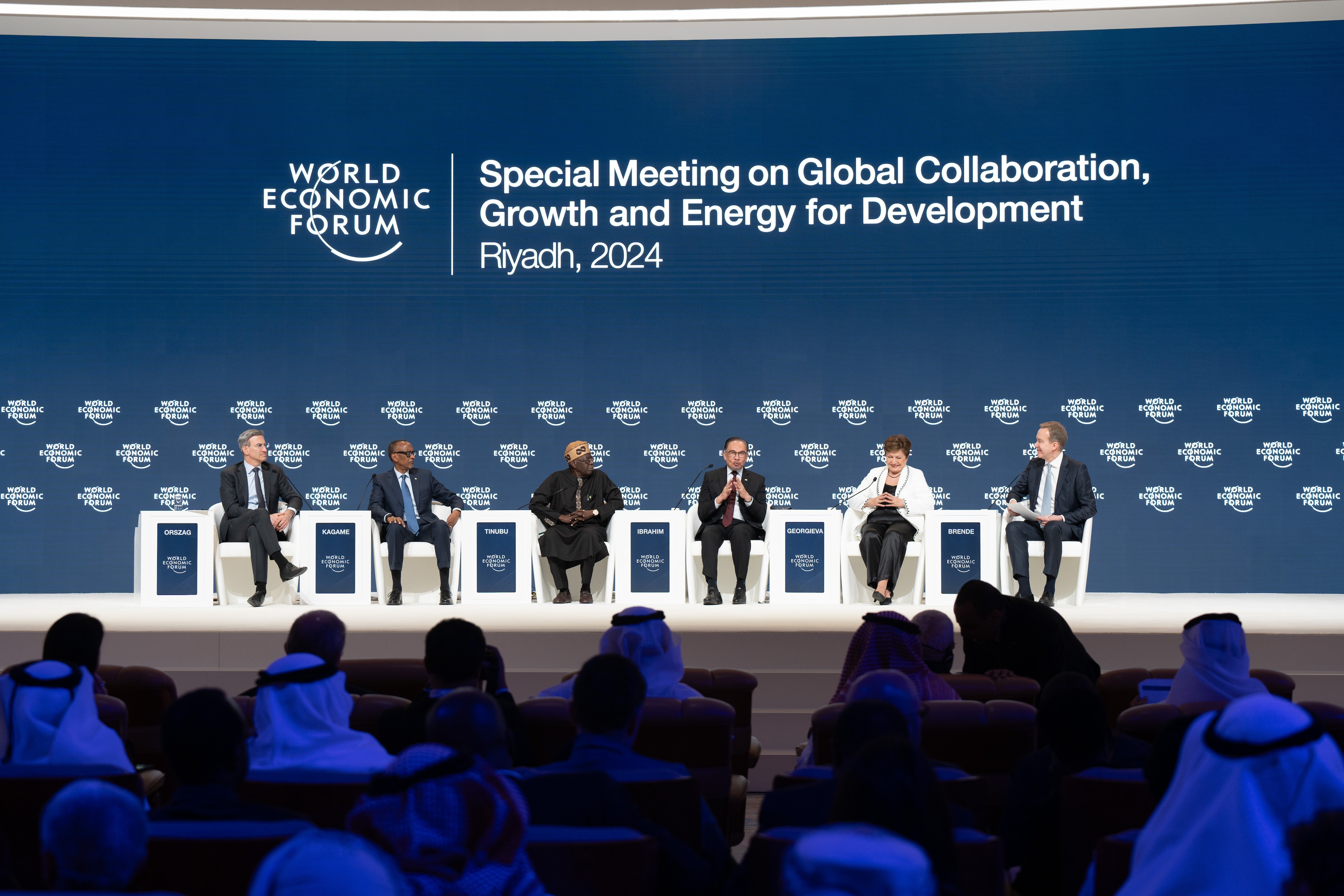Digitalizing SMEs and industrial value chains to unlock growth for the new decade

With full digitalization of businesses large and small, we may aim higher and look to achieve extensive digitalized industrial collaboration throughout the value chain. Image: Unsplash/Markus Spiske

Get involved with our crowdsourced digital platform to deliver impact at scale
Stay up to date:
The Digital Economy
Listen to the article
- Small and medium enterprises make up the lion’s share of companies, but they struggle to access the same digital tools available to larger businesses.
- Global digital productivity gains have not kept up with overall economic growth, partly due to the gaps in digitalization between large and smaller enterprises.
- Tech practitioners have a responsibility to create new digital institutions that can support entrepreneurs of all sizes, unlocking productivity and kickstarting growth.
In the past decade, the diffusion of digital technologies was a main driver of global economic development. The digital economy accounted for 55.7% and 29.8% of GDP in the developed and the developing world respectively. In China, the contribution of the digital economy to national GDP rose from 21.6% to 41.5% between 2012 and 2022.
However, as recent OECD research suggests, global digital productivity gains have not kept up with overall economic growth, partly due to the gaps in digitalization between more resourceful large enterprises and the rest of the industrial ecosystem.
Where shall we turn to for new engines of growth in the next decade? I see two main areas of opportunity. First, a more inclusive digital ecosystem building on deep digital transformation of small and medium-sized enterprises (SMEs). Second, the creation of technology-driven institutions for cross-industry collaboration that brings about the digitalization of entire value chains across borders.
Investments in these two areas will usher in a new stage in the digital transformation of industries and economies, with longer-term, greater implications for truly sustainable and broad-based global prosperity.
How is the World Economic Forum fostering a sustainable and inclusive digital economy?
Achieving inclusion: A new paradigm for digitalizing SMEs
The benefits of digital transformation shouldn’t be the privilege of only large businesses. Building an inclusive digital system means SMEs should have full access to digital productivity tools to enjoy the benefits of innovation.
The majority of the world’s enterprises are SMEs. Entrepreneurs in this space can tell you that compared to larger businesses, they hesitate to invest in deep digital upgrades because of high costs, technological barriers and security challenges. A survey in 2021 found that while 30% of large enterprises in China are at an advanced stage of digital transformation, only 9% of SMEs have reached such a stage.
In this great challenge also lies a great opportunity to advance towards full digitalization. One promising paradigm is the “Platform + Independent Software Vendor (ISV)” model. In this collaborative model, an open platform like Alipay provides a suite of foundational technology capabilities to help ISVs provide SMEs with effective and low-cost digital services through open APIs. These capabilities range from payment, security, to marketing and operations.
What is AMNC, the World Economic Forum's meeting in China?
Drawing on Alipay’s technology repertoire, ISVs may organize and combine these capability modules to suit the unique needs of SMEs. An ISV in this ecosystem can build mini-programmes for SME clients in five minutes, with costs as low as a few hundred RMB per year. Further, individual solutions can be re-integrated to develop sector-specific SaaS products for broader application.
Why do we need such a collaborative model? For one, the platform alone cannot provide the full range of sector-specific SaaS solutions for hundreds of sectors. In addition, ISVs will face formidable challenges in achieving sustainable commercial viability if they have to work from the bottom up to build an entire spectrum of technology tools. Only when large platforms and nimble ISVs work together will we be able to help hundreds of millions of SMEs achieve deeper levels of digitalization.
Technological infrastructure for global digitalized industrial collaboration
The impact of single-point digitalization is always limited. With full digitalization of businesses large and small, we may aim higher and look to achieve extensive digitalized industrial collaboration throughout the value chain. Centralized avenues of validation are not sufficient for complex systems of cross-industrial collaboration. The key to solving that challenge is to build a comprehensive institutional foundation of trust through new technologies.
Using the latest technologies in the artificial intelligence of things (AIoT), blockchain and privacy-preserving computing, it is now possible to create a network of trusted data sources and transaction flows, not only across sectors but across national borders. In this trusted, secure and distributed industrial collaboration network, the dynamic configuration of rights will be verified and protected at every stage of the transaction, and new economic value and business opportunities will arise.
Let’s take the example of the equipment leasing industry, where a common challenge is to ascertain complex structures of ownership and rights, often spanning many countries. One of the largest industry players worked with AntChain to develop a Trusted Uplink T-Box. The device utilizes blockchain and AIoT technologies to achieve end-to-end trustworthiness of data. This means rights of use and rights of ownership are effectively separated, recognized, and protected, as data runs on the blockchain across the distributed network.
Only with such institutional assurances of trust can we guarantee frictionless connectivity throughout an industry value chain that involves multiple manufacturers, asset recyclers and asset owners. Such new systems of digital protocols are evolving rapidly to become a core infrastructure that will support long-term growth across industrial sectors and nations, driving a resurgence in global cooperation.
The 2020s open up great opportunities for us to reach new heights of global collaboration and shared prosperity. By building a truly inclusive digital ecosystem and unleashing the hidden value along industrial chains in fully digitalized collaboration, together we will be able to unleash new productivities across borders. This will help businesses and nations lay the foundation for sustainable, high-quality growth for the coming decade, and many more decades to come.
Don't miss any update on this topic
Create a free account and access your personalized content collection with our latest publications and analyses.
License and Republishing
World Economic Forum articles may be republished in accordance with the Creative Commons Attribution-NonCommercial-NoDerivatives 4.0 International Public License, and in accordance with our Terms of Use.
The views expressed in this article are those of the author alone and not the World Economic Forum.
Related topics:
The Agenda Weekly
A weekly update of the most important issues driving the global agenda
You can unsubscribe at any time using the link in our emails. For more details, review our privacy policy.
More on Forum InstitutionalSee all
Gayle Markovitz
April 28, 2024
Gayle Markovitz
April 27, 2024
Mirek Dušek and Maroun Kairouz
April 27, 2024
Kate Whiting
April 26, 2024
Spencer Feingold and Gayle Markovitz
April 19, 2024
Kate Whiting
April 17, 2024






